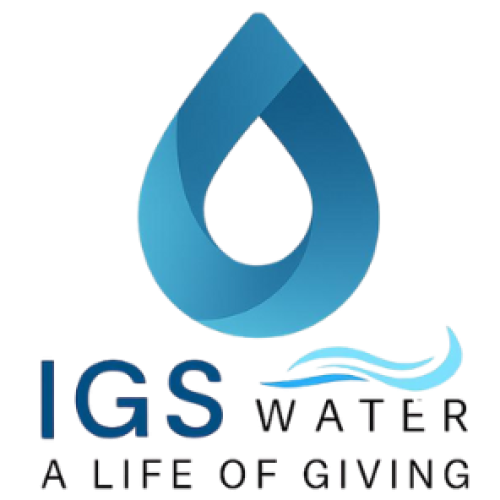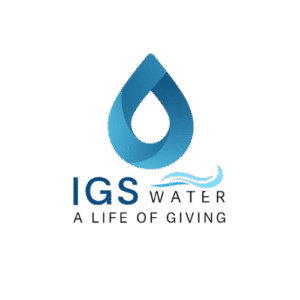In an era where clean water and efficient water management are more critical than ever, IGS Water stands out as a forward-thinking provider of advanced water and wastewater treatment technologies. With a deep commitment to innovation, environmental responsibility, and customer-focused service, IGS Water is building a reputation as a trusted partner for both industrial and community water challenges.
Who Is IGS Water?
IGS Water operates under the philosophy that every drop of water matters. They provide a broad portfolio of water treatment, wastewater treatment, and water management solutions—not limited to just purification, but extending to smart systems, monitoring, and integrated support.
Their vision centers on delivering fast, effective, and personalized water solutions that improve human health and protect the environment.
With branches across Asia-Pacific—Australia, Thailand, Singapore, and beyond—IGS Water serves a diverse clientele and responds to region-specific water challenges.
Core Products & Technologies
IGS Water’s edge lies in combining multiple technologies to meet varying water conditions and use cases. Here’s a look at some of their key offerings:
- Nanobubble Generators — These generate ultra-fine bubbles (nanobubbles) that improve oxygen transfer, disinfection, and mixing in water systems.
- Water Conditioners — To treat water by reducing contaminants and stabilizing quality for safer usage.
- Pond Aeration / Destratification Systems — Used especially in aquaculture, lakes, or large water bodies to circulate water and avoid stagnation.
- Water Quality Monitoring Sensors — For real-time tracking of parameters like pH, dissolved oxygen, turbidity, or other key metrics.
- Static Mixers — Devices that promote mixing of chemicals, gases, or treatment additives uniformly in flowing water.
- Silver Ion Generators — A method of disinfection using silver ions to suppress microbial growth.
- Lightning Protection System (WxLine) — This is probably included as part of their broader infrastructure and protection offerings.
By combining these technologies, IGS Water can design tailor-made systems for a client—from small-scale installations to industrial-grade plants.
How IGS Water Works: Their Process
IGS Water follows a structured lifecycle when working with clients:
- Consultation / Discussion
They begin by understanding the client’s current water quality, treatment goals, and constraints. This also involves analyzing any pollutants or challenges in the water source. - Solution Design & Installation
Once a system is selected, their team handles installation (piping, electrical systems, integration, automation, control systems) and ensures compliance with safety and regulatory standards. - Maintenance & Monitoring
After deployment, IGS Water doesn’t walk away. They offer continuous monitoring, performance checks, calibration, preventive repairs, and support—often with remote/cloud systems helping track performance.
One standout policy is their “No Fix, No Pay” approach, which suggests that they are confident in their ability to deliver results, and they base payment on the system’s performance.
Why IGS Water Stands Out
- Comprehensive & Integrated Approach
Rather than just selling one piece of equipment, IGS Water designs complete systems—hardware, software, monitoring, support. - Innovation & Sustainability
Their commitment to adopting and combining advanced technologies (e.g. nanobubbles, IoT sensors) helps them deliver higher efficiency and lower environmental impact. - Strong Support & Accountability
With policies like “No Fix, No Pay” and dedicated technical support, clients gain assurance that their investment pays off. - Global Reach with Local Presence
Having offices in multiple countries allows them to adapt their solutions to local regulations, climate, and water quality conditions.
Real-World Applications & Benefits
IGS Water’s systems can be applied to many sectors. Some examples of where their solutions are likely beneficial:
- Aquaculture & Fisheries: Maintaining water quality is critical in fish farms; aeration, monitoring, and treatment reduce mortality and improve yields.
- Municipal Water / Wastewater: Cities and communities can deploy their systems to ensure safe drinking water and treat sewage more effectively.
- Industrial Plants: In manufacturing, food & beverage, or chemical plants, wastewater and process water treatment is often a regulatory and operational necessity.
- Agricultural & Irrigation Systems: Clean water delivery, nutrient balancing, and preventing blockages or biofouling help farms run more smoothly.
- Environmental & Ecosystem Restoration: Ponds, wetlands, and lakes can benefit from aeration, destratification, and pollutant removal.
Clients adopting IGS Water’s solutions may see improvements in water clarity, decreased contamination, reduced operational downtime, and compliance with stricter water quality standards.
Challenges & Considerations
While IGS Water brings advanced solutions, there are common challenges in the water treatment space they must navigate:
- Heterogeneity of Water Sources
No two water sources are exactly alike (contaminants, pH, hardness, organic load). This means solutions must be customized, which can increase complexity. - Upfront Costs
Integrating advanced equipment and IoT systems may require significant capital investment. The ROI depends on scale, usage, and maintenance practice. - Maintenance & Expertise Required
Sophisticated systems require trained personnel, regular calibration, and proper upkeep. - Regulatory Compliance & Standards
Especially in different countries, local water standards, discharge regulations, and certification requirements may differ. Adapting systems to these is essential. - Reliability & Redundancy
In critical applications (e.g. hospitals, drinking water supply), system failures are unacceptable. Thus backups, fail-safes, and monitoring are crucial.
Future Outlook & Trends
IGS Water is well-positioned to evolve in the midst of several global water trends:
- Smart Water Networks
Integration of IoT, AI, and predictive analytics will allow proactive maintenance, fault detection, and optimization of water systems. - Hybrid Treatment Technologies
Combining physical, chemical, and biological methods (e.g. membrane filtration + biological reactors + nanobubble aeration) yields more robust performance. - Circular Water Economy
The push to recover resources (nutrients, water reuse) from wastewater aligns well with IGS’s system philosophy. - Decentralized & Modular Units
Smaller, modular treatment systems for rural or remote areas can bring clean water solutions to underserved communities. - Carbon & Energy Efficiency
Water treatment systems will be judged not just on output quality, but also on energy consumption, carbon footprint, and lifecycle sustainability.
IGS Water’s embrace of newer technologies and its holistic approach suggest it can ride these waves of change successfully.

